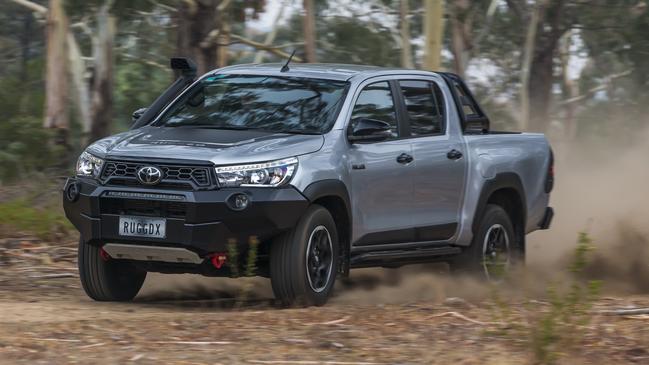Utes to lead car sales recovery as May figures show green shoots
May figures show a light commercial vehicle-led recovery could be the way back from the biggest slump on record.

The car industry is pinning its hopes on an LCV-shaped recovery after May figures showed light commercial vehicles leading the way back from the biggest sales slump on record.
While May — traditionally one of the strongest months — followed April into decline, with sales down 35 per cent, the industry said there were signs of “green shoots”.
They cannot come quickly enough for car showrooms, which have now experienced more than two years of consecutive month-over-month reverses.
Australia was on track for its worst annual result since the early noughties, with the COVID-19 crisis amplifying the problems caused by bushfires, tight lending conditions and political uncertainty, the industry said.
In May, the two worst-hit states were Victoria and Tasmania, which have been slowest to loosen COVID-19 restrictions, with demand down 41 per cent and 52 per cent. However, the figures were an improvement on April, and the Federal Chamber of Automotive Industries said on Wednesday it was cautiously optimistic.
“With people venturing out a little more, dealers have advised of a slight uptick in floor traffic through dealerships,” FCAI chief executive Tony Weber said.
Buyers were being encouraged by end-of-financial year deals and the asset write-off program, with demand for buses, vans and utes outperforming other segments.
Light commercial sales fell by almost a quarter but market favourites, such as the Toyota Hilux, as well as budget utes from Chinese brand LDV, suffered relatively minor falls.
Another winner was Ram, which imports US-sized utes and converts them to right-hand drive. Demand rose more than 40 per cent in May, despite prices starting at $80,000.
The FCAI praised Canberra’s stimulus initiatives and said it was discussing further incentives. “The instant asset write-off initiative has real potential to help stimulate the market, and we would like to see it extended in its current form beyond June 30,” Mr Weber said.
Political tensions with China failed to affect demand for small Chinese cars from MG, now owned by Shanghai Automotive, and SUVs from Haval, owned by Chinese maker Great Wall, both of which boosted deliveries compared with last May.
Among luxury makers, Porsche, with demand down 7 per cent for the year to date, believes the worst is over. “There was a noticeable sales uplift in the last two weeks of May,” Porsche chief executive Sam Curtis said.
“June should be a better indicator of market demand.”
He said pre-orders showed half the potential buyers were new to the brand.







To join the conversation, please log in. Don't have an account? Register
Join the conversation, you are commenting as Logout